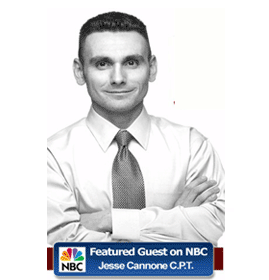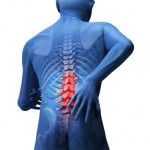Drugs Not Giving Back Pain Relief For War Veterans
War veterans suffering from a herniated disc have found little relief in taking drugs, and there have been cases when a returning veteran has had to go as far as taking heroin to overcome the pain caused by a degenerated spinal disc. It is evident that drugs are not giving back pain relief for war veterans from studying the cases where drugs have failed to provide any relief to back pain.
A new method of treatment for back pain is being followed by a group of pain management front liners through injecting local anesthetics into nerves localized to the pain. There have been instances when extensive doses of narcotics have failed to provide any results in curing back pain. However, a process of heating the needle and injecting the anesthetic fluid into the adjacent area of the nerves has been found to be successful in treatment of back pain according to this article.
Drugs Not Giving Back Pain Relief For War Veterans
Some estimates show that as many as 25 percent of returning veterans are abusing drugs to deal with pain and post-traumatic stress.
It’s been a long road for Matt Gossard, who served as an Army specialist.
He started with Percocet to east the back pain of two herniated discs, then switched to oxycontin and when that no longer worked, he went to the streets for heroin.
By then, he was out of the Army, unemployed, and a junkie.
“You’re hooked. You’re a drug addict, you know what I mean, and you start doing things that you would never do before. You start doing the drugs and from the heroin, just that lifestyle of the people you’re around, it’s not a good life,” Gossard said. “I was bound for prison or I was bound for death, just because of the lifestyle I was living, and that’s not the person I am. It’s just the drugs take over your life.”
So how could a decorated veteran, a leader of his unit, fall so far in a downward spiral while trying to deal with the pain from serving his country?
To get answers, NBC4’s Mike Bowersock went to the Walter Reed National Military Medical Center, the former Navy hospital in Bethesda, Maryland, to ask people who are on the front lines of pain management with returning veterans.
“We can localize specific nerves or nerve groups and then using a very small needle, deposit local anesthetic adjacent to those nerves,” said Lt. Cmdr. Dr. Harold Gelfand.
Along with the trauma cases, doctors at the center deal with those who are in pain.
“What we’re dealing with are forces that are leagues beyond what they’re seeing in the civilian sector,” Lt. Cmdr. Gelfand said.
The center is where victims of IEDs often have lost legs, an arm, or worse.
With incredible trauma comes incredible pain.
“A lot of our wounded warriors will suffer chronic pain related to injuries they sustained. The more traumatic the injury, the more severe the injury, the more likely they’re going to have these chronic pain issues,” Lt. Cmdr. Gelfand said.
They have learned that opiate pain drugs, like oxycontin, are not the long-term answer.
“When we first were starting here with pain at that time, the philosophy was there’s no upper limit to the use of narcotics. If a patient doesn’t have enough pain relief, you just give them more narcotics and eventually they’ll reach a point where they have enough narcotics to have pain relief,” said Cmdr. Dr. James Houston.
Walter Reed seldom allows video of any of its procedures, but officials permitted NBC4 to record a surgery on a soldier who, like Gossard, was injured in an IED blast and now has incredible back pain.
Doctors were able to isolate the pain to a single area of nerves.
“We place a fairly large probe right on the bone where the nerve sits that goes to those joints, then we heat up that needle to almost boiling and essentially cook and kill the nerves,” Cmdr. Houston said.
It’s one step in getting wounded warriors off the oxycontin.
“At one point, it was over 80 percent of our wounded warriors were on narcotics chronically. Now, we’re down to 10 to 15 percent,” Cmdr. Houston said.
Gossard was able to stop taking the drugs through exercise, physical therapy and Our Master’s Camp in southeastern Tennessee.
It’s a faith-based drug and alcohol treatment center where Gossard lived for six months.
At age 29, Gossard still has a long road ahead of him, but he said he believes it will be a road without pain medication.
War veterans trying to overcome back pain by having drugs injected into the painful region of their back have found little relief in doing so. Instead, they have experienced the trauma becoming addicted to the drugs not giving back pain relief for war veterans. Being injected with local anesthetic into the areas of the nerve endings causing pain has been found to produce results. You would hope that being subjected to a hot needle will be less painful than a sore back.
Fred Wade suffered from major back pain – Now he wants to let fellow sufferers know how he got lasting pain relief without drugs or back surgery!
Find out all the options apart from surgery by grabbing a free copy of the back pain relief guide below. Simply click the Instant Access button below for your free book.
You might also like:
Tags: back pain medication, Drugs Not Giving Back Pain Relief For War Veterans















